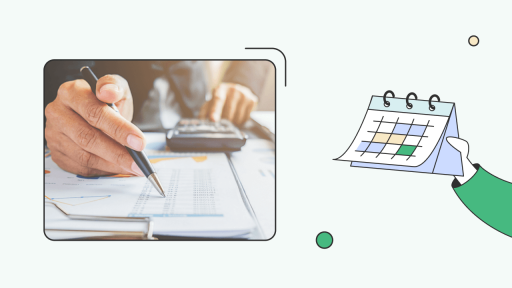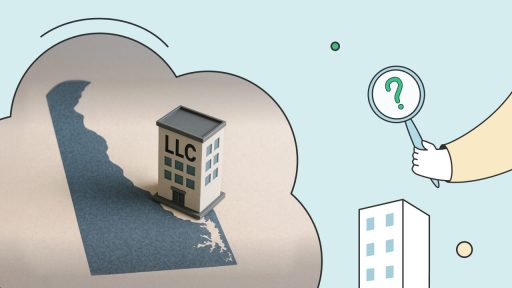So you have taken your business digital and are trying to figure out how you can navigate the online sales world with specific regard to taxes? Fret not dear business owner; here is a handy guide to illuminate the path of online taxes for you.
What is online sales tax?
Let’s start with the basics—just what is online sales tax? Online sales tax is sales tax due for internet or other remote sales. In other words, when you sell an item online, state and local authorities demand their cut just like with a traditional brick-and-mortar store. This means you collect sales tax at the point of purchase, remit the collected tax back to the state, and file regular sales tax returns with the appropriate tax authority.
Online sales tax collected so much attention because of the explosion of internet shopping and because of the June 2018 South Dakota v. Wayfair, Inc. Supreme Court ruling upholding the constitutionality and allowing states to tax out-of-state sellers, and yes, this includes online sales.
How does online sales tax work?
As we mentioned earlier, all this is to say that internet-based sellers can no longer dodge their tax responsibilities and ignore the related obligations. To put it bluntly, if you sell taxable physical products in a state, you have a sales tax nexus and, therefore, are on the line to collect a sales tax for the state.
The good news is that it’s not quite as complicated as it seems. First off, you need to make sure users are treated the same way as a customer who walked into a brick-and-mortar store and bought something. That is, they must be charged a regular retail sales tax. There is a slightly complicated set of rules, and they can be different in almost every state. Here’s a snapshot of where taxes should be collected and how you can get started.
Here’s how this breaks down: Sales and purchase taxes vary by state. They can start at the state level, often between 4-8%, and then may also include local components on top of that. Although most states require sales tax on most goods they sell, there are some exceptions. You will want to double-check on sales tax rates, discounts, and rule exemptions for your product and service offerings. Find the specific rates and rules of each state your business is located in and start calculating sales taxes from there.
Keep this in mind: even if products in one state are sales taxable, they may not be taxable in another state. This goes for certain services, digital goods, and subscriptions as well.
Do I need to collect sales tax to sell online?
Let’s get into a fancy sales tax word called the Nexus to answer this all-important question. The short answer is this: if you have a nexus in the state(s) in which your dear patrons call home, then, absolutely you need to charge that tax.
On the flip side, if you find yourself doing business in a no-sales tax state like, say, Alaska, Delaware, Montana, New Hampshire, and Oregon or ship goods to customers in a state where you don’t have nexus — it is possible that you may not have to collect the tax. But — here’s the big but — laws change all the time, so it’s necessary to keep up to speed!

Do I need a sales tax permit to sell online?
Yes! If you have to charge sales tax in a state, then you will most likely need to register for a sales tax permit (or seller’s permit or resale certificate in some states) at the state. This permit gives you the legal right to collect sales tax on taxable goods and services.
Here is how it works. In most states, you register for a sales tax permit at your state’s online agency website. You fill out the permit with relevant information about your business. This includes your business name and description, business structure, type of goods you think you will be selling, and (sometimes) an estimation of the volume of sales you think you will be making.
Once this is done, you need to ensure compliance. That means you need to charge the right amount of tax to customers and filing requirements as well. This will usually be monthly or quarterly, depending on how much you make in sales.
How much is online sales tax?
Online sales tax rates for a state can range anywhere from 0 percent to over 10 percent for a specific state. Currently, the combined tax rates can be as follows. For example,
- California has a base sales tax rate of 7.25%, but the rate can get up to 10.25 because California tacks on local rates for a total of up to 10.25%.
- New York bases its state rate on 4% but also has local areas that can increase the rate to 8.875%.
- Wyoming has a rate that is a model 0% and may go up to 4%.
But this is only a fraction of the States among any others, and this does not help you figure out how much to charge. This is now the time and place to get some compliance tools to help you calculate what you need.
Which states require sales tax for online purchases?
Here are the states that require sales tax for online purchases:
- California
- Texas
- Florida
- New York
- Illinois
However, Several states don’t have a state sales tax at all, including:
- Delaware
- Montana
- New Hampshire
- Oregon
How to be tax compliant as an online seller
Ending up in the brave new world of full compliance may seem like straying in the Bermuda Triangle, but there is hope — online sales tax guides (and the sales consulting guides) that can help (including this one). Here are things you need to do to get started and keep going:
- Plainly Define Nexus: Understanding that nexus is a connection between a state and something (like your business, for example) is of utmost importance. This might require some research, but figure out where it is and where it isn’t.
- Sales Tax Permit: How can you collect sales tax if you don’t have the government’s permission to do so?
- Tax Rate Look-up: Always do your homework to know what your sales tax rate should be in any nexus jurisdiction. This will save you time and hassle in the long run.
- Sales Tax Software: Use shopping carts and tax plugins that will calculate, collect, and remit sales tax for you.
- Keep Records: Did we mention putting on your best CPA hat and preparing records? Because CPAs are the life of the party.
- Consultants: It’s not a bad idea to talk to a tax enforcer and ask them about the most efficient way to comply with sales and use tax.
Forging ahead with online sales tax knowledge
Figuring out online taxes as a newbie can make you feel like that toddler out in the garden taking their first steps. Frustrating? Yes, but fret not! With a great guide such as Workhy, a can-do attitude, and the right tool, you will be selling and taxing like a pro! So, let this guide lead you on in the online tax world and watch the bucks rolling in while being tax-compliant and safe from the dreaded powers that be!







